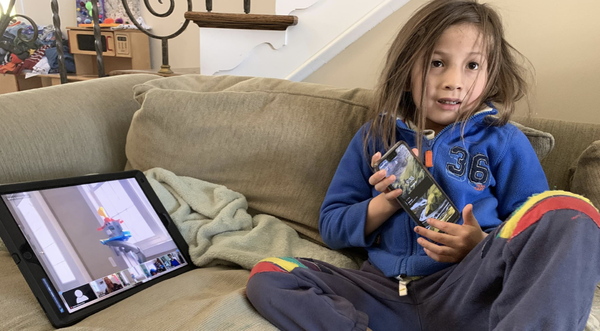[ 549 words ]
How do we extend business and human value when turmoil surrounds us?
We ask questions we’ve previously ignored, and find new perspectives that help us transition.
The challenge is the same at home as at work. I sit down for my performance review, anxious. “I know you tried your best, Rod,” begins my son’s preschool teacher, Ms. Betsy. Then I hear a litany of ways I need to improve.
I’ve always been responsible for my boys’ education, but my wife and I have never been the primary teachers. Now I fully understand the impact of behavior problems, and I have the professional Ms. Betsy to highlight ways to change. Rather than laughing without thinking when my son giggles over another adults’ directions, for example, I’ll consider the full implications. I’ll be more likely to stay firm, circle time will be quieter, and my son may grow up better adjusted.

We can apply a similar approach in business. Consider the food industry. We’ve known for decades that many Americans eat un-healthfully. And with 70+% of the population overweight, we’re at higher risk for chronic diseases such as diabetes, and heart and lung ailments.
But today we get a view as insightful as becoming our children’s primary teacher. We look at our own overweight bodies on Zoom all day, and then read articles on how that weight puts us at risk of becoming a Covid statistic. Leaders have greater will to change.
But we still need an insightful Ms. Betsy to pinpoint how to change. For example, I’m collaborating to develop an integrated summary of the economic, social, and biological systems impacting our food, initially focused on fats and oils. Resulting insight can help architect policy debate, target community and research effort, and empower business to profitably deliver healthier food.
Support for the current initiative is overwhelming. A Nobel Prize winning economist, Gary Yohe, advised the team on research structure and endorsed the initiative. Employees at some of the largest and most innovative organizations share insight about our food system. And experts provide contacts and cheer.
Perhaps we’re creating what systems thinkers call missing conversations. Maybe it’s closer to what health strategist Pierre Vigilance describes as junctional thinking. Whatever the term, it means leveraging a chance to see the world through a unique lens.
So, see the world differently. Re-visit actions you’ve never questioned before. And as you look for the insights that will deliver the strategy and tools to reboot and restore value in our economic and health crisis– find a way to come out healthier. In fact, let’s increase life expectancy faster than time passes. By doing so, we’ll #ReverseAging. We’ve more than enough technology to do so. But, only creative thinking and meaningful action will support such change.
Do you eat food? Would you like it to be healthier? Then like this post. And if you’re seriously interested, reach out.
Send me your thoughts or write a comment below.
Safeguard your future today. And position yourself to thrive for your children tomorrow.
Rod
Dr. Rod Wallace is an economist, consultant, and speaker who helps businesses make more money by solving society’s problems. A Fulbright Fellow, he has led multi-organization billion-dollar initiatives worldwide and partnered with a Silicon Valley pioneer to explore the impact of Artificial Intelligence on society.
Rod speaks about how to integrate social responsibility into business to maximize profit and purpose. He highlights digital technology’s impact on society and the strategies and tools with which business can solve our big, systemic problems.
Contact Rod at info@RodWallacePhD.com.
